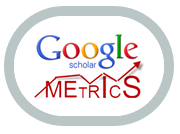THE ENVIRONMENTAL THEORY OF BENVENISTS AND THE TEACHING OF THE PORTUGUESE LANGUAGE:
A POSSIBLE DIALOGUE
DOI:
https://doi.org/10.47456/pl.v11i28.35309Abstract
The present paper seeks to discuss the contributions about the Theory of Enunciation, proposed by Émile Benveniste for the teaching of the Portuguese Language, according to the guidelines of the National Curriculum Parameters - PCN, in order to analyze Benveniste's propositions as a counterpoint to the language treatment method basic education institutions. Thus, Benveniste postulates that it is through language that man inserts himself into society, so that it is also through cultural interaction that the rudiments of a language are learned. Therefore, it is noted that, for the most part, the PCN prioritize the teaching of the Portuguese in its standard norm, excluding variants of the colloquial language, which are absorbed in the daily speech of a certain group. Thus, works by authors such as Marcos Bagno, Roxane Rojo and others are used in order to verify the treatment of the teaching of Portuguese standards, in detriment to the particularities of each individual, which can be observed in the dialogue with clippings from the theory. of Benveniste. Then, the research has a bibliographic and analytical character, as excerpts from texts by the aforementioned authors are studied, in order to establish an analysis of the PCN, along with Benveniste's theory.
Downloads
Downloads
Published
How to Cite
Issue
Section
License
Copyright (c) 2021 PERcursos Linguísticos

This work is licensed under a Creative Commons Attribution-NonCommercial-NoDerivatives 4.0 International License.
O autor de submissão à Revista PERcursos Linguísticos cede os direitos autorais à editora da revista (Programa de Pós-Graduação em Linguística - UFES), caso a submissão seja aceita para publicação. A responsabilidade do conteúdo dos artigos é exclusiva dos autores. É proibida a submissão integral ou parcial do texto já publicado na revista a qualquer outro periódico.
Os trabalhos aqui apresentados utilizam a licença Creative Commons CC BY: Attribution- NonCommercial- NoDerivatives 4.0 International. Para mais informações, verificar: https://creativecommons.org/licenses/by-nc-nd/4.0/
Os trabalhos na revista são arquivados pelo sistema Rede de Preservação PKP (PKP PN) e LOCKSS





